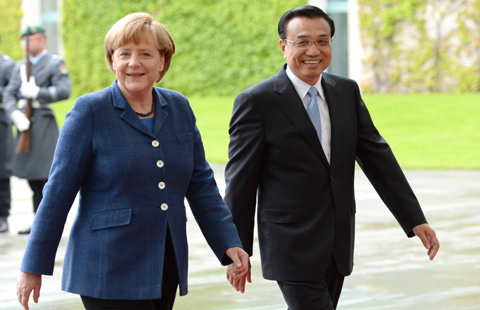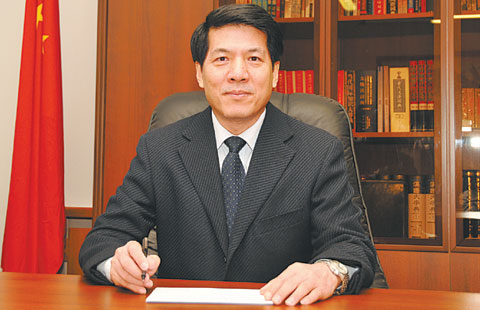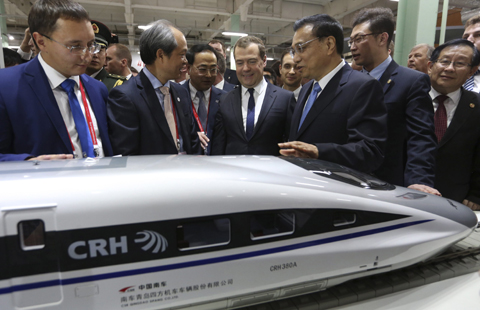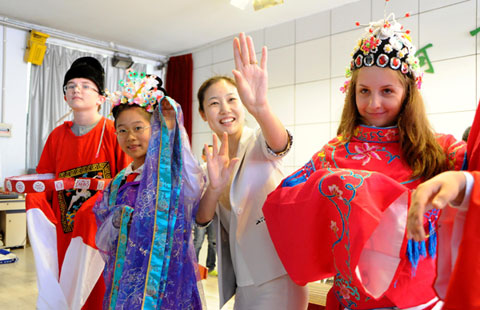Premier's visit takes China-Germany ties to new height
BEIJING - China-Germany ties are set to reach a new height with the two countries inking multi-billion-dollar deals and a landmark "action plan" to upgrade bilateral cooperation.
Before wrapping up his second visit since becoming premier, Li Keqiang, together with German Chancellor Angela Merkel, on Friday oversaw the signing of a wide-ranging guideline covering 110 cooperation agreements over the next five to 10 years.
This followed the signing, also on Friday, of $18.1 billion's worth of trade, investment and technological cooperation deals between the two economies, which had a trade volume of around 140 billion euros last year.
The action plan and deals come as a big boon to Europe's economic locomotive and Asia's largest economy, which are both facing headwinds.
Germany's top think tanks on Thursday slashed their 2014 growth forecast for the country to 1.3 percent, while the Chinese Academy of Social Sciences on Friday cut China's growth rate forecast to 7.3 percent.
Through the new deals, Germany will be able to effectively tap China's huge market to pick up the slack in its lukewarm economy. At the same time, China can gain more experience and knowledge to upgrade its economy.
As Premier Li said during his visit, the China-Germany relationship is not a "simple buyer-seller one," but a "high-level, win-win cooperative relationship with bright prospects."
Trade and investment are not the whole story. The two sides should strive for an "innovation partnership," with cooperation in industry, science and technology, agriculture, education, environment protection, urbanization, health care and social security.
The plan also calls for cooperation in food security, rule of law, renewable energy, intellectual property rights (IPR), small and medium-sized enterprises (SMEs), digitalized industrial production, electronic cars, and aerospace and aviation.
The cooperation agreements in these areas, written down in the landmark "action plan," will bring the two countries' current relationship, which is focused on trade and investment, to a higher level.
However, concrete steps are necessary to follow up on the plan. Both sides should do their utmost to translate its bright ideas into tangible results.
It is impossible for the two countries to agree on every issue, such as high-tech export restrictions, but they can solve these problems with wisdom.
Related Stories
Chinese premier attends welcoming ceremony held by Merkel 2014-10-11 11:30
Premier, Merkel aim to further boost ties 2014-10-11 10:59
Premier gives Merkel a puzzle 2014-10-11 10:56
Chinese premier says HK govt able to keep HK safe 2014-10-11 07:09
Premier Li, Merkel on a trip to supermarket 2014-10-11 00:40
Deals on agenda as Chinese premier starts Europe trip 2014-10-10 21:02
Background







